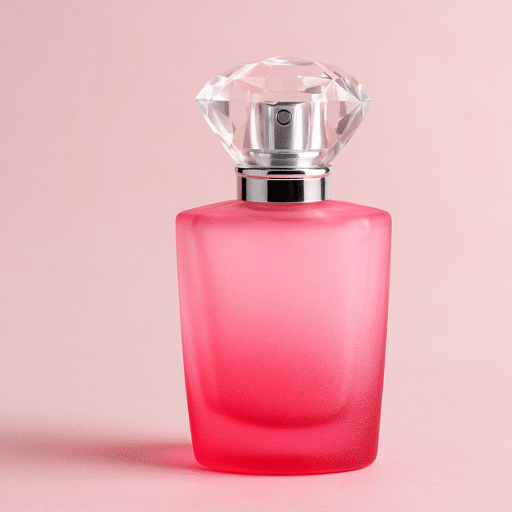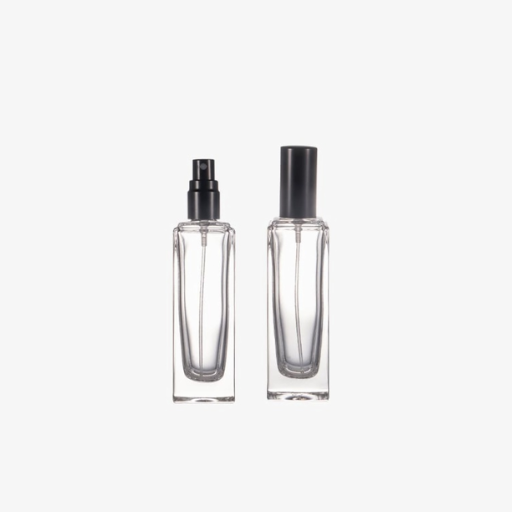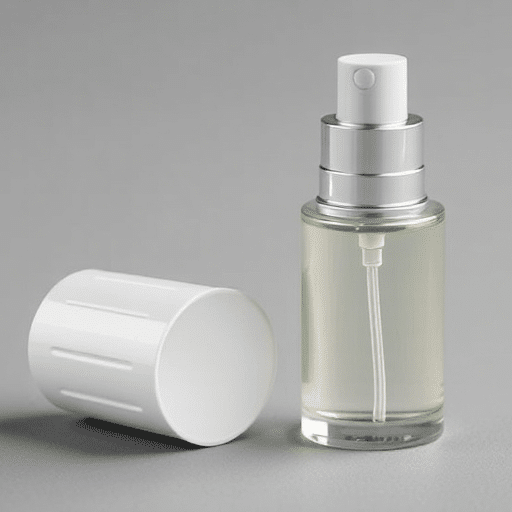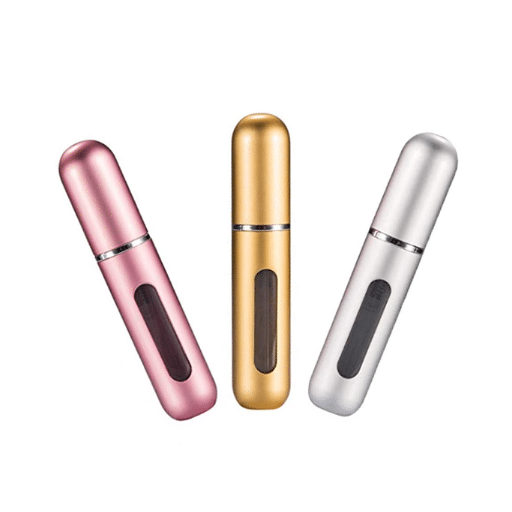Preserving your treasured perfume can be a two-sided coin. Engaging in good habits here and there can make a big difference. One common debate among fragrance lovers is whether to place the cap on or take it off after usage. Although it may seem like the farthest thing from a big decision, everything boils down to it affecting the scent’s strength, freshness, and lifespan. In this article, we will discuss the science about perfume storage and the role of the cap in addition to steps you can follow to ensure that your go to scent remains as refreshing as it was when you first purchased it. Continue reading to find out how to ensure your favorite fragrances remain in pristine condition for the decades to follow.
Should you keep the perfume cap on or off when storing your fragrance?
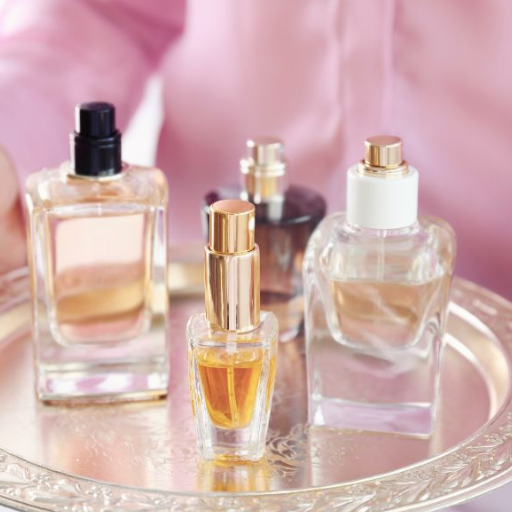
In storing your fragrance, making sure the perfume cap is on serves a crucial role. The cap prevents air exposure, which has been known to degrade perfume. Additionally, perfume loses its freshness over time which is something people wish to avoid. Putting the perfume cap on helps minimize evaporation, which ensures that the concentration of the perfume is retained along with its longevity of. Ensure that the cap is tightly secured to maintain the quality of the perfume.
How does leaving the cap on affect perfume longevity?
Leaving the cap on your perfume bottle acts as protective armor. The longevity perfume has while the cap is left on is influenced by how much environmental exposure the fragrance is protected from. Keeping the cap sealed safeguards the fragrance from evaporation, which ceaselessly diminishes the concentration of aromatic compounds. Unchecked exposure to air can result in oxidation, a type of environmental exposure that weakens the strength of perfume by altering the chemical composition. According to research, proper storage, which requires sealing the cap, increases a perfume’s lifespan by 1-3 years compared to those fragrances that lack seal and are exposed to air. This habit allows your perfume to remain true to its original scent by refreshing it instead of weakening it over time. The cap also prevents light from getting into the perfume; a factor that, accompanied by humidity, can enhance the pace of deterioration.
What happens when you store perfume without its cap?
From my own experience, I’ve noticed that perfume degrades faster when stored without the cap. One of the reasons why the scent might weaken is due to oxidation occurring from air exposure. Evaporation decreases the fragrance concentration as well. Hence, perfume would lose its freshness and longevity over time.
Do perfume bottle caps preserve fragrance molecules?
Absolutely. Perfume bottle caps help to preserve fragrance molecules by limiting exposure to air, light, and the environment. Keeping a perfume bottle uncapped means air will flow in and interact with the liquid. This leads to oxidation which is guaranteed to change the chemical structure of fragrance molecules and weaken the perfume.
Evaporation does not occur in caps as well. Without a secure cap, volatile components that make the top and heart notes of a perfume can be lost causing an imbalance in the perfume’s complexity. Research shows that perfumes exposed to air lose 20 percent of their aromatic properties in just a few months when compared to sealed bottles.
Caps also stop light and heat from impacting the perfume. Ultraviolet light is especially dangerous because it can quickly destroy delicate fragrance compounds. When combined with cool temperatures and dark storage, a tightly sealed cap can ensure a perfume’s integrity for a long period. Therefore, caps serve a more important purpose than simply being decorative. They play a vital role in preserving the quality and lifespan of your perfume.
How to properly store your perfume to make it last longer?
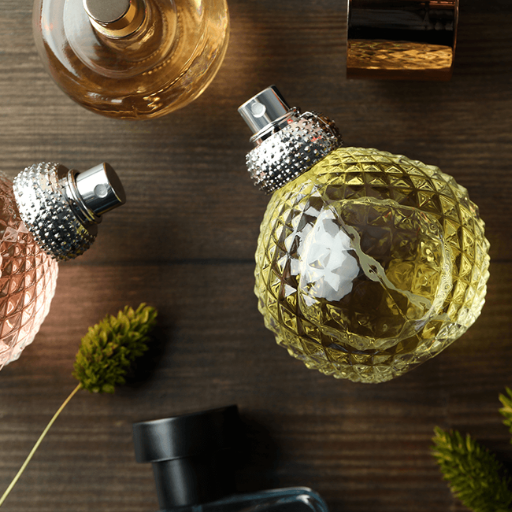
To extend the life of your perfume, non climate-controlled spaces should be avoided as well as direct sunlight or heating elements. These locations will ultimately expose the fragrance to extreme heat, which will degrade and alter the composition of the scent. While not in use, keep the bottle sealed tightly to restrict airflow and evaporation which would diminish the quality of the scent. Storage spots that have low humidity, such as bathrooms, should also be avoided due to the moisture’s impact on the fragrance. A cool dry drawer or shaded shelf within a climate-controlled environment works best.
Is storing perfume in a dark place necessary?
Indeed, storing perfume in dark places will help maintain its quality and longevity. Sunlight and fluorescent lighting, in particular, can cause chemical reactions on a component of the perfume. A delicate balance of ingredients may break down, resulting in a changed or faded scent with time. Research shows that the essential oils that are usually present in perfumes are affected by ultraviolet (UV) light exposure for a prolonged period.
While a dark and cool environment slows oxidation, study indicates that a temperature of about 55°F to 72°F (12°C to 22°C) aids in stabilizing most fragrances. Blue and green tinted bottles are utilized by manufacturers to block light entry to the perfume, these do not help if the fragrance is stored in constantly lit areas.
Placing perfumes in shaded areas permits the user to avoid temperature dubs and light damage. For example, cabinets or drawers away from windows are ideal for these beauties, retaining the intended fragrance for a longer time.
Should you keep your perfume in the original box?
Preserving a perfume in its box goes a long way in maintaining its shelf life. It helps in protecting the fragrance from light and heat which are two factors known to damage perfume over time. Studies show that chemicals in certain fragrances can react in the presence of direct light which can drastically destroy the intended scent. Therefore, keeping the perfume packed in its original casing provides additional protection which helps maintain the quality over time.
In addition to protecting from light and heat, the box also protects from sudden temperature changes. Extreme weather conditions can disrupt the stability of the molecules in perfume weakening the overall quality. Data suggests that perfumes stored in cool and dark environments optimally maintained at 60 to 70 degrees Fahrenheit, accept greater periods without experiencing degradation to the scent. While keeping the bottle in the original box may feel like a small step, it greatly makes a difference in fragrance preservation.
Does temperature and humidity affect how perfume ages?
Certainly, both temperature and humidity have a considerable impact on the aging of perfume. High temperature speeds up oxidization which breaks down fragrance molecules. A scent may lose its profile and worsen over time. Research shows over 77 degrees Fahrenheit leads to increased degradation, especially in warm and humid areas. Warm and wet climates can foster moisture which breeds mold and bacteria inside of the perfume bottle.
Too much humidity is also corrosive to aging perfumes. If a bottle isn’t sealed properly, excessive moisture can enter and change the balance of chemicals in the bottle, weakening the perfume. As a result, perfume must be placed in an environment with 50% relative humidity for better longevity and integrity. The ideal environment to store the perfume would first be a dark dresser protected from windows and heat. With those conditions, the lifespan of the bottles can be increased and keep their delightful scent.
Does the type of perfume bottle affect whether you should keep the cap on?
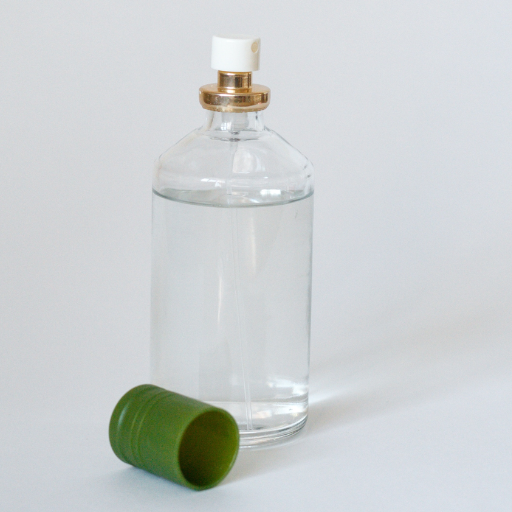
Certainly, the kind of perfume bottle does affect whether you should keep the cap on. Perfume bottles without an airtight seal are susceptible to evaporation and exposure to air, which degrades the perfume over time. In this instance, the cap does help preserve the scent. Thus, it is better to keep the cap on at all times. You may also want to keep the contents fresh for as long as possible. Perfume does not spoil, so it should be kept away for extended periods without worrying about it going bad. In this case, you are trying to minimize open space for air and contamination. The best solution is to keep the lid on.
Are glass bottle perfumes more sensitive to being stored without caps?
Yes, glass bottle perfumes are more sensitive due to their exposure to environmental conditions. Although elegant and passive, glass bottles provide no protection against light, air, or temperature changes. Without a cap, the perfume tends to oxidize due to air exposure, which in turn alters the composition of the fragrance, leading it to be off scent over time. Research shows that oxidation has a very damaging effect on volatile compounds in a perfume, losing some or becoming fragmented in certain notes when exposed to air for a prolonged period. Alongside this, uncapped glass bottles are easily contaminated with dust or particles, further diminishing the fragrance’s quality. Thus, to ensure longevity and scent integrity, glass bottle perfumes should always be stored with their caps on, whilst being placed away from direct sunlight and heat, to minimize external destructive influences.
Do plastic bottle perfumes evaporate faster without caps?
Indeed, perfumes contained in plastic bottles are likely to evaporate quicker without caps because of the volatile nature of the fragrance compounds. Thin-skinned plastics, unlike glass, have a higher permeability plastic bottles have a greater rate of permeable air exchange over time. This permeable exchange is enhanced when the container is left uncapped, allowing access to air into the container, and increasing evaporation further. Furthermore, perfumes sealed in plastic containers without lids are left vulnerable to uncontrolled oxidation and contamination which can harm the fragrance quality.
Research on packaging materials showed that fragrances placed in plastic containers compared to those placed in glass containers that lack an airtight seal showed faster rates of perfume evaporation. Scientists explain that certain forms of plastic polymers absorb and interact with fragrance oils and release them, which leads to material degradation over time. To minimize evaporation, capping the plastic bottles securely once in use and placing them in cool and dark locations will assist in the reduction of air, temperature, and heat all of which promote evaporation.
How do spray caps differ from regular perfume bottle caps?
Spray caps and standard perfume bottle caps are distinct both in the way they function and the way they are structured, which affects how perfume is stored and used. With spray caps, the atomizer is built into the cap so that it can vaporize some of the fragrance when the user presses it, making the application more even on skin and cloth. Spray caps decrease the chance of the perfume coming in contact with air during storage, thus its evaporation and the chance of contamination are greatly reduced. Because of this, they are a great choice for keeping perfume for longer durations.
On the contrary, standard perfume bottle caps do not contain any dispensing mechanism, instead simply sealing the bottle’s opening. While preventing spills is their forte, these caps lack robust protection against air exposure which increases the risk of evaporation as well as the potential degradation of the perfume’s composition. Industry research indicates that perfumes preserved in spray-cap bottles tend to retain their olfactory characteristics longer than those stored in non-spray bottles—up to 18 months with proper storage—whereas non-spray bottle users can experience spritzing after a year or sooner, depending on the conditions. Furthermore, a spray cap’s greater control over the amount of perfume dispensed lessens application and wastage, making these caps more effective for everyday use.
What are common mistakes people make when storing fragrances?
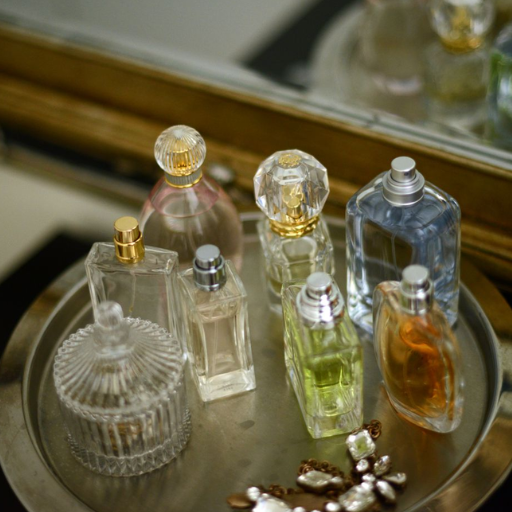
1. Exposing perfumes to direct sunlight: Direct exposure to UV rays and sunlight can degrade perfumes rapidly sun exposure can change the perfumes’ scents and UV rays can alter composition.
Not sealing the cap properly: Leaving the cap off or loosely fitted allows fragrance molecules to escape. This may lead to faster evaporation.
2. Storing bottles in humid or warm environments: Bathrooms, for example, can lead to quicker breakdown of fragrances due to moisture and constant temperature changes.
3. Allowing frequent air exposure: Without spray caps, constantly opening and closing bottles can lead to quicker scent degradation.
4. Placing bottles near heat sources: Fragrance compounds may be destabilized by heat from radiators, ovens, or electronic devices.
5. Using original boxes as storage but leaving them in improper locations: Although boxes may protect fragrances, placing these boxes in hot or damp areas loses their protective benefits.
6. Not using sealed containers: Unsealed containers can expose perfumes to dust and strong scents. Dust can cause particles to be trapped inside the perfumes which leads to oxidation and strong scents will stick to the perfumes, ruining it.
Why is keeping perfume in the bathroom a bad idea?
Though it might seem convenient to place your perfume in the bathroom, it is one of the worst locations for storing it. Bathing and showering creates an environment of high humidity along with fluctuating temperatures. Such conditions can spoil perfumes causing them to lose potency, mutate, spoil quite literally, or even worse go bad. Moreover, humidity can impact the integrity of a fragrance’s packaging, causing cap leaks and bottle degradation.
Violating a temperature gap of 8°C or 15°F when it comes to perfume perishability adds detrimental oxidative effects. The same humid conditions along with a fluctuating temperature can lead to weakened fragrance notes, and less potency, especially in bathrooms which are notoriously unfavorable for preserving fragrances. To retain quality, store fragrances away from light, heat, and moisture, preferably in drawers or closets, while keeping them in dry, cool, and dark areas.
Does direct sunlight damage your perfume?
Does direct sunlight damage perfume? Yes! Direct exposure to sunlight can be exceptionally damaging to your perfume. Sunlight exposure speeds up the perfume’s fragrance molecules breakdown due to UV light, which results in them losing their strength as well as their intricate composition. Your perfume can undergo chemical changes as well as discoloration from prolonged exposure thus making it unpleasant or odourless over time. Research on UV effects on liquid storage has indicated that liquids stored in the light can degrade 70% quicker than those kept in cool shaded environments. Additionally, sunlight can directly affect the balance of essential oils versus alcohol in the fragrance which can diminish its quality. To keep the perfume’s integrity, it is best not to keep the bottles on window sills or spots where there is sunlight for a long time. Clear, opaque, or dark bottles are a better choice, and storing them in cool shady places can prolong their durability.
Is shaking the bottle harmful to your fragrance?
Indeed, shaking the bottle is not recommended as it may be detrimental to your fragrance. A perfume’s composition consists of essential oils, alcohol, and other components harmonically blended to develop its unique scent. Shaking the bottle introduces air bubbles into the liquid, which increases the chances of oxidation occurring with the ingredient’s components. The chemical structure of the fragrance could potentially be affected by oxidizing the scent or shortening its lifespan.
In addition, vigorous shaking may tamper with the fragile molecular arrangement of the fragrance, particularly for complex perfumes. Agitation may result in ingredient separation which would change the perfume’s smell from its original state. To avoid harming the perfume’s composition, these bottles should be treated with care for gentle handling. Ensuring a longer period of delivery for the intended scent and maintaining its quality requires preserving the integrity of the fragrance.
How long does perfume last when stored with or without a cap?
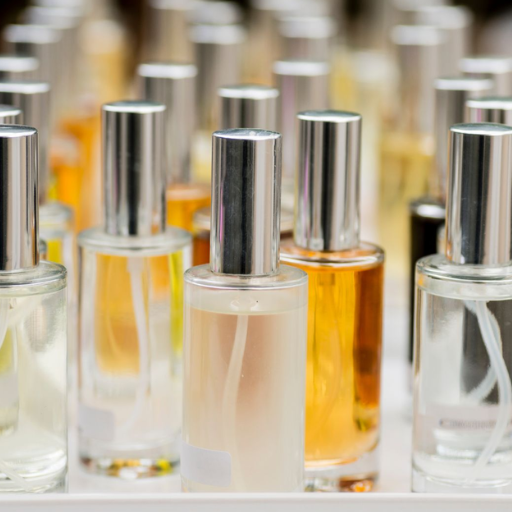
A capped perfume can last for several years and quite literally last try and keep it in a good, dark, and cold place. The cool place has to be away from sunlight and any other source of heat. The cap on the perfume bottle will always slow down air from getting into the bottle therefore slowing down scent degradation. If un-capped, the perfume bottle loses some containment through air which allows oxidation. This could shorten the life of the perfume bottle significantly bringing it down to a few months depending on exposure levels. Make sure perfume bottles are kept tightly sealed so that the quality of the fragrance is long-lasting.
Can perfume evaporate completely if left without a cap?
Yes, perfume consists of volatile compounds without a cap. Alcohol and essential oils are some ingredients used in perfume and they seem to evaporate when air is added and this gasses it into volatile compounds. Alcohol is a huge part of perfume so it slap-you-first evaporates in open air. In just a few months, uncovered perfume bottles can lose nearly half of their volume. Studies show that the temperature humidity, and the surrounding air do greatly impact the equation.
With time, not only does the liquid reduce, but the fragrance also changes as the lighter top and middle notes evaporate, leaving behind the base notes and/or altered scent profile. This process disrupts the intended balance of the fragrance and degrades the quality. To prevent evaporation, always store perfume in a sealed bottle and in a cool, steady environment. Correct storage will help preserve the fragrance for multiple years while sustaining its volume and scent.
How does oxidation affect perfume over time?
The effects of oxidation greatly change a perfume’s quality. Perfume interacts with air, and when perfume is exposed to air, the oxygen and fragrance molecules engage in a reaction, changing their chemical composition. This can result in an unpleasant scent that is overly sharp, dim, or lose its multi-layered scent profile complexity. A good example would be how citrus perfumes are prone to oxidation, resulting in a sour or rancid scent because the fragile citrus notes deteriorate. Studies show that oxygen exposure can speed the decomposition process of alcohol and essential oils in the mixture, which further reduces the perfume’s quality.
To inhibit oxidation, perfumes should be kept in a climate-controlled dark location with the container sealed tightly for maximum protection. Exposure to light and heat can boost oxidative processes, diminishing the product’s effectiveness. Under proper storage conditions, perfumes can retain their integrity on average for three to five years, while improper conditions can degrade this time significantly. Altering oxidation risks greatly enables a lover of fragrances to preserve the beauty and balance of a fragrance.
Can you make old perfume fresh again after it’s been stored improperly?
Restoring a perfume that has lost its original freshness is no easy task. That said, some strategies can help improve the condition of the perfume. First, remove the fragrance from the original bottle and place it in a new clean, airtight glass bottle to reduce further oxidation. Try to minimize contamination during the transfer process by using a syringe with a silicone tip lid during the transfer process.
It may also be possible to improve the scent by layering it with unscented lotion, or by combining them with fragrances that compliment the scent such that they outweigh the unpleasant notes. Perfumes that are severely degraded and have a sour, rancid smell are beyond saving. Going back to my earlier point, souring and rancid smells are telltale signs the bottle has been overheated, exposed to sunlight, or subjected to moving air.
Studies indicate that some parts of a perfume, like citrus oils and gentle florals, can degrade more than others over time, depending on the ingredients used. Heavier base notes, like wood and resin, are likely to remain stable. If you are dealing with a vintage fragrance that is partially degraded, these base notes may still provide enjoyment as standalone remnants of the original scent. Although fragrance production has advanced, there is still no effortless method to revive perfume to its peak freshness if stored incorrectly, highlighting the need for proper storage from the outset.
Are there any exceptions to the rule of keeping perfume caps on?
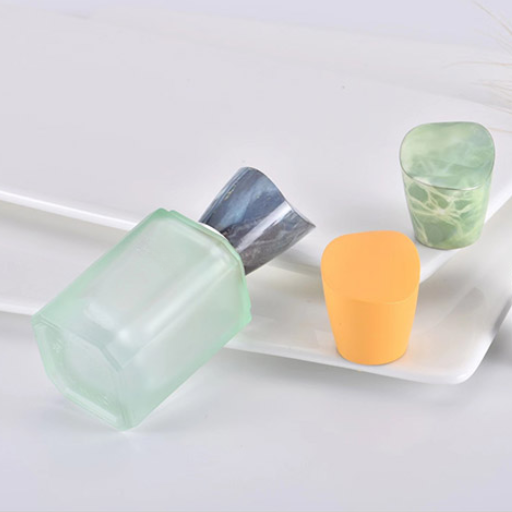
Like most things in life, storing perfume has its dos and don’ts. While high-quality perfume oils do tend to evaporate at a much slower rate than alcohol-based perfumes, they generally do not require caps for short periods. Higher-end perfumes do come equipped with specially designed bottles that protect against evaporation. Fortunately, the bottles come equipped with caps and seals that guard against permanent evaporation and oxidation. But high-end perfumes cannot be relied on to prevent access evaporation. Ultimately, it is best practice to keep caps on for non-volatile perfumes.
Should the nozzle be cleaned before putting the cap back on?
Perfume quality preservation and ensuring durability is cleaning the nozzle before recapping. The nozzle area is not the main culprit, but residue from perfume caked around the nozzle may lead to its clogging, over time affecting the performance of the spray mechanism. Old residue may also oxidize altering the original scent profile of the fragrance. The best approach solution is to gently clean the nozzle with a soft cloth or cotton swab soaked with rubbing alcohol. Cleaning avoids buildup so that distribution is possible whenever the bottle is grabbed. Saves hygiene acids so that cap-worn perfumes do not get contaminated by dirt grub. That small effort is aimed at preserving integrity while prolonging the lifespan of the fragrance.
Are there any benefits to occasionally leaving the cap off?
Strong and overpowering perfumes may benefit from having the cap left off for a short period, allowing the most pungent top notes to evaporate. Softening fragrances can make them more palatable for personal preference. Care should be taken, though, as too much exposure to air will result in oxidation which can negatively impact the balance of the scent. Research suggests perfumes with high concentrations of natural oil or fragile floral elements are the most susceptible to change due to prolonged contact with air. Therefore, while some might not consider it damaging, minimizing this practice is advisable to maintain the perfume’s integrity.
Reference Sources
-
Methodology for Evaluation of Compatibilities of Cosmetic Perfumes and Plastic Containers:
- Examines how different storage conditions, including cap tightness, affect perfume evaporation and quality.
- Highlights that loose caps can lead to increased evaporation and potential degradation of the fragrance over time.
- Uses sensory evaluations and chemical analysis to assess perfume stability in various storage scenarios.
-
Chemical Reactions in Perfume Ageing:
- Investigates how sealing methods (e.g., hermetic sealing vs. cork closures) influence perfume aging and chemical stability.
- Finds that hermetically sealed bottles better preserve fragrance integrity by limiting exposure to air and contaminants.
-
- Discusses the role of bottle caps in automated perfume production and storage systems.
- Highlights the importance of secure caps in regulating perfume flow and preventing spillage or evaporation.
Frequently Asked Questions (FAQs)
Q: Should you keep the perfume cap on or off to keep perfume fresh?
A: It is best to keep the perfume cap on when not in use. This helps to keep your perfume fresh by minimizing exposure to oxygen in the air, which can break down the fragrance over time.
Q: Does keeping perfume in the original bottle affect its longevity?
A: Yes, keeping perfume in the original bottle is a good way to store perfume. The original bottle is designed to protect the fragrance from light exposure and air, helping it last as long as possible.
Q: Is it advisable to keep perfume in the fridge?
A: Keeping perfume in the fridge can help maintain a consistent temperature, which is beneficial for preserving the composition of the perfume. However, make sure the bottle of perfume is tightly sealed to prevent any moisture from affecting it.
Q: How does light exposure impact the perfume?
A: Light exposure can break down the chemical composition of the perfume, which may affect the scent and cause it to go bad faster. It’s best to store perfumes in a dark, dry place to keep them fresher for longer.
Q: What are some tips for keeping your perfume fresh?
A: To keep your perfume fresh, store it in a cool, dry place, away from direct sunlight. Keep the cap on when not in use and avoid shaking your perfume bottle, as this can introduce air and break down the fragrance.
Q: Does opening a perfume bottle frequently affect its lifespan?
A: Yes, frequently opening a perfume bottle can introduce oxygen, which may break down the fragrance and reduce the life of your perfume. To preserve its quality, try to limit how often you open the bottle.
Q: Can the perfume package help in preserving the fragrance?
A: Yes, keeping perfume in the box or package it came in can help protect it from light and temperature fluctuations, which are factors that may affect the scent and longevity of the fragrance.
Q: How does the consistent temperature benefit the perfume?
A: Maintaining a consistent temperature helps in keeping the perfume’s composition stable, ensuring that it smells as good as the day you bought it and lasts as long as possible.
Q: Is it necessary to keep your perfume away from the bathroom?
A: Yes, it’s advisable to keep your perfume away from the bathroom due to humidity and temperature changes, which can break down the fragrance and affect its longevity.
Q: How does shaking your perfume bottle affect its scent?
A: Shaking your perfume bottle can introduce air bubbles, which can break down the fragrance over time. It’s best to handle the bottle gently to keep the perfume fresh.

